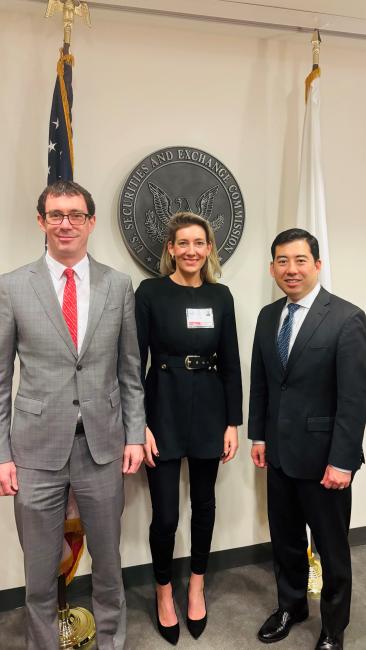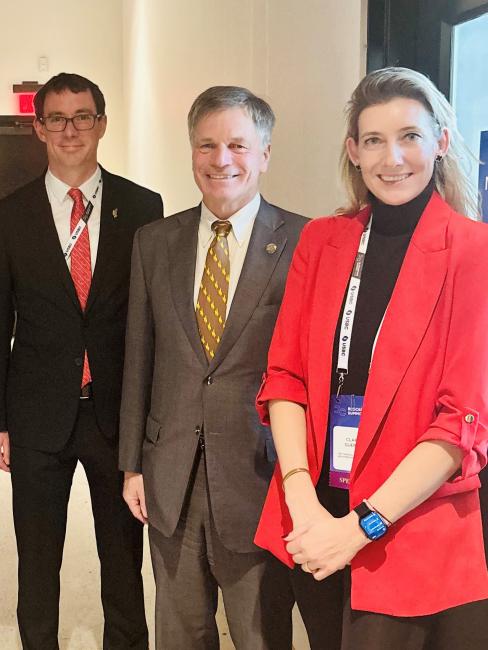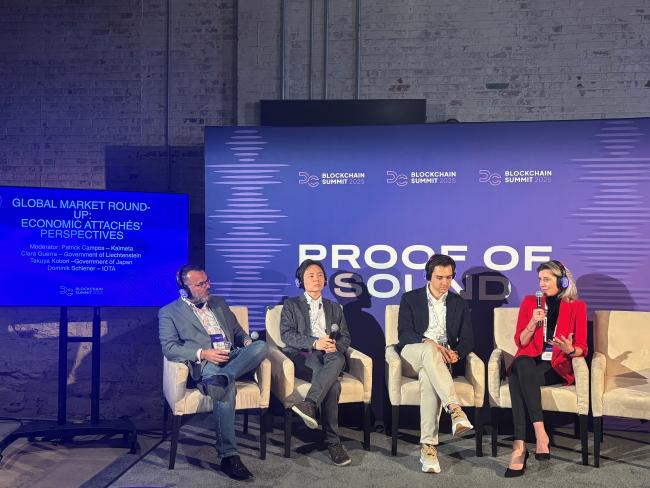Friday, March 28, 2025
This week Dr. Clara Guerra, Head of Liechtenstein's Office for Digital Innovation, visited Washington to present Liechtenstein’s experience as a pioneer in the field of blockchain regulation and digital assets.
There was keen interest in Liechtenstein's legal framework for the Token Economy as the United States discusses developing its own regulatory regime.

During her visit, Dr. Guerra and Ambassador Georg Sparber met with Acting Chairman of the U.S. Securities and Exchange Commission, Mark Uyeda, to discuss regulatory developments in the digital asset space. A key focus of the discussion was Liechtenstein’s early and comprehensive approach through its Blockchain Act, in force since 2020. The conversation explored how the framework has been applied in practice — including the supervision of service providers, questions around custody and asset transfers, and the regulation of DeFi (Decentralized Finance) activities — as well as how it balances legal clarity, innovation, due diligence, and consumer protection. Opportunities for continued dialogue and international collaboration were also discussed.
Ambassador Sparber and Dr. Guerra also had the pleasure of meeting with Governor Mark Gordon of Wyoming, another jurisdiction that has taken an early and pioneering approach to blockchain legislation. The exchange highlighted areas of common interest, particularly the design of innovation-enabling legal frameworks and the potential of deeper cooperation.

Dr. Guerra was also invited to speak at the DC Blockchain Summit where she shared Liechtenstein's experience with the implementation and supervision of the Blockchain Act, and discussed current trends in blockchain regulation and token innovation. She also met with US Congressional experts and private sector leaders, exchanging views, regulatory insights and explore and best-practices.
BACKGROUND ON LIECHTENSTEIN'S BLOCKCHAIN ACT
In 2020, Liechtenstein became the first country in the world to implement a dedicated comprehensive framework governing the token economy. The Token and Trusted Technology Service Provider Act (known as the TVTG or “Blockchain Act”) goes beyond cryptocurrencies to provide a technology-neutral and innovation-oriented legal framework for a wide range of tokenized applications — including digital assets, tokenized securities, real-world assets, and smart contract-based services.
Key features include:
- Legal certainty for tokens as representations of rights or assets (not just data on a blockchain);
- Civil law provisions governing ownership, possession, and transfer of tokens;
- Registration and supervision of service providers by the Financial Market Authority (FMA);
- Protection of users and clear rules for token-based transactions in digital ecosystems.

The Blockchain Act is fully compatible and complementary to the EU’s Markets in Crypto-Assets Regulation (MiCAR), which has been nationally applicable in Liechtenstein since 1 February 2025. Together, TVTG and MiCAR offer a comprehensive legal environment for digital asset businesses.
With its access to the European Single Market via the European Economic Area (EEA) and a customs and currency union with Switzerland, Liechtenstein offers a uniquely positioned business location for companies seeking a secure, trusted and forward-thinking regulatory environment at the intersection of EU and global markets.
